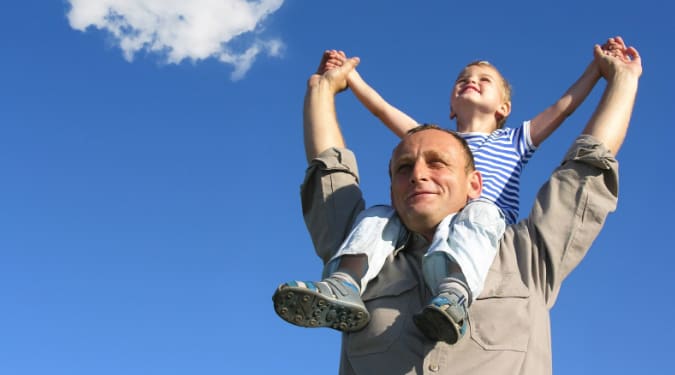 In this week’s Parsha, Shelach, the Jewish people are preparing to enter the Promised Land and Moshe sends 12 spies to scout out the Land of Israel. Ten of the spies returned from their trip with extraordinarily large clusters of grapes, pomegranates and figs (think of the Kedem logo) and with only bad things to say about the Land of Israel. Only 2 spies— Caleb and Yehoshua—did not join the other spies in speaking badly about Israel. They encouraged the Jewish people to go up to the land and conquer it.
In this week’s Parsha, Shelach, the Jewish people are preparing to enter the Promised Land and Moshe sends 12 spies to scout out the Land of Israel. Ten of the spies returned from their trip with extraordinarily large clusters of grapes, pomegranates and figs (think of the Kedem logo) and with only bad things to say about the Land of Israel. Only 2 spies— Caleb and Yehoshua—did not join the other spies in speaking badly about Israel. They encouraged the Jewish people to go up to the land and conquer it.
The strength of character of Caleb and Yehoshua always fascinated me. They were “upstanders” instead of bystanders. They did not succumb to the pressure of the 10 wayward spies. They maintained their faith in G-d and Moshe. They were able to stand their ground and do the right thing.
This is not an easy task. We all have felt the need to be part of the group and have felt the difficulties when the group is not acting in appropriate ways. How many of us have faced the question: Do we go along or do we stand up for what we believe in, what we think is right?
There is an insightful Midrash that picks up on this struggle. The beauty of the Torah is that G-d shows us a window into the struggles of our great forefathers. It seems as if it was not so easy for Caleb to withstand the pressure of the spies. He recognized that it is so easy to be swayed by the crowd, the majority opinion. He understood that he needed some help. So according to the Gemara, Sotah, 34b, when the spies reach Hebron, Caleb separates himself from the group and prays at the Cave of Machpela, where our forefathers are buried:
“Fathers, beg for me that I be saved from the spies’ counsel.”
The lessons of the Torah are timeless. So how does this apply to our lives today?
We can all remember the times that we behaved inappropriately because we were not able to withstand the pressure of the group, especially when we were children and teens.
I know that I am most regretful of the times when girls in my class or in camp would bully another girl and I did nothing to put a stop to it. I always admired my friends, the Calebs and the Joshuas, who were able to withstand peer pressure and do the right thing.
I had many great role models in my life but I always wished that there was an adult who could have advised me on how to withstand peer pressure, especially when it came to bullying. I wish I had known some ways to be an upstander instead of a bystander. So, I am determined to help my kids find the courage and the resilience to do the right thing and be the Calebs and the Joshuas in their peer group.
There is so much information now on how to help our kids do the right thing and be “upstanders.” Here are 3 simple ways to teach our kids to stand up for others:
Role Model:
Kids watch our every move. They learn more from our actions then from our lectures. As I write this article, I keep on thinking, why didn’t Joshua go with Caleb to the Cave of Machpela, to pray for strength. I’d like to suggest the following: Joshua was Moshe’s right-hand man. Joshua spent so much time with Moshe, and Moshe was the ultimate role model in doing the right thing, no matter what others were doing. Joshua had a living example, which quite possibly fortified him, making it less of a struggle to be influenced by the spies.
So the best way for us to teach our kids to stand up for victims is simply letting them see us treating others kindly. And that even means the annoying cashier at the supermarket, the talkative repairman, and the relative who stays way too late.
Give Them Skills:
Kids do not know instinctively what to do in a bullying situation. It is helpful to talk about these things in a relaxed atmosphere, perhaps at dinner or at the Shabbos table. Many experts agree that kids can do 4 things when they witness a bullying situation:
1. They can stop the situation by going over and telling the bully to leave the victim alone. If that is too much they can ask the victim to come play with them away from the bully.
If they don’t feel comfortable doing that, then:
2. After the bullying episode, they can ask the victim to come and play with them and be kind in that way.
3. Tell an adult. Many kids might feel uncomfortable doing this, if so they can do it privately, away from where kids are fighting.
4. Let them know that they can always come to you if they find that they are uncomfortable managing the situation themselves.
State Your Expectations:
Once they have these skills and have an idea of how to handle these tough situations, you can let them know that you expect them to act as an upstander:
“It is an important Torah value in our home that we stand up for what we believe in and we stand up for people who are being bullied.”
Tell Stories:
When we are sitting around our Shabbos table we try to always discuss something about the Parsha. I think as we talk about our Torah leaders, it is important to highlight that it was not always easy for our forefathers to do the right thing, but they became great because they overcame their natural inclinations and did what they had to do, When Avraham left his homeland, when Yehuda had to plead to Joseph on behalf of Benjamin, When Moshe stood up to Pharoah and of course when Caleb and Joshua withstood the pressure of the 10 spies.
This Shabbat, let us take the opportunity to use this Parsha story to teach our kids to be upstanders and to stand up for others.
The words of this author reflect his/her own opinions and do not necessarily represent the official position of the Orthodox Union.



